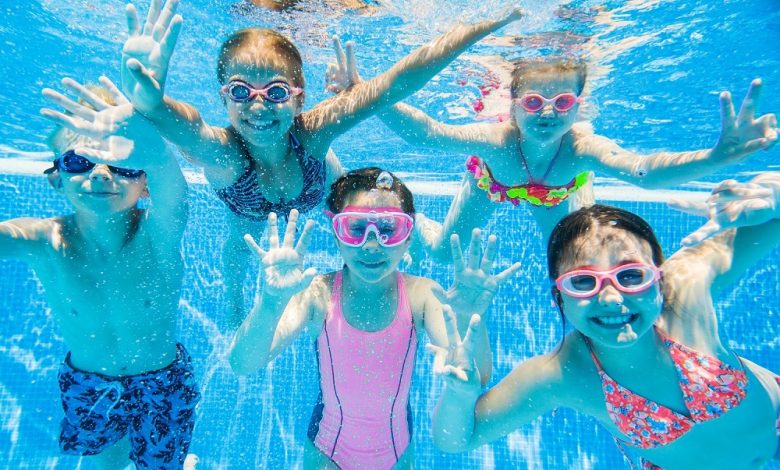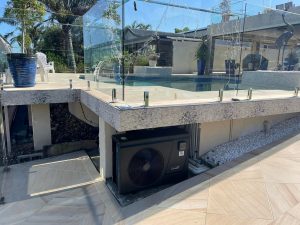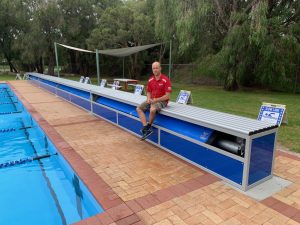
Warm pools: Give your guests a guilt free an all-year experience
Keeping environmentally-conscious guests happy while offsetting pool heating energy impact has become a balancing act
Your swimming pool is a huge draw for guests and one of your accommodation’s biggest selling points. Guests want to enjoy your pool for as much of the year as possible and that’s why it makes sense to extend its usage well into autumn, through to spring.
Oftentimes, accommodations, need their pools to be an “all-year experience”, and even in the tropics with a climate like Cairns, pools can drop to uncomfortable temperatures during winter. However, it may be a concern that pool heating is not only an additional financial burden to bear but also not very environmentally conscious.
The energy running cost of using fossil fuel heaters especially if you have a larger resort pool, can run into many tens of thousands of dollars per year, not to mention the cost to the environment.
Today’s travellers want to make the least impact on the environment, they want their accommodations to be more environmentally friendly and they actively seek sustainability. Happily, movement towards more sustainable ways of heat engineering and technology is a global effort because ultimately your guests still want to enjoy warm pools!
And so, what is the solution for your pool?

Steve Batey is the National Commercial Director of Madimack who works closely with domestic and international tourism operators to optimise eco-conscious, efficient, and engineered facility solutions.
He explained: “Recently, New York City banned the use of natural gas in new buildings. Buildings under seven stories are to ‘go electric’ by January 2024, with taller buildings after July 1, 2027. If the largest city in America can take this critical step to ban gas use, any city, hotel, or resort can do the same.
“Global directives are driving net-zero targets toward 2030 by promoting sustainable improvements in industry, giving large and small hotel chains massive opportunities to improve their environmental footprints along with overall efficiency.”
He went on: “You will find that technology and innovation are coupling to create ‘engineered intelligent design’, which provides significant efficiencies at a commercial level.

“Inverter Heat Pump technology has been instrumental in lowering running costs dramatically within resort pool heating. Continual optimisation in technological development has led to engineered design and performance that optimises your hotel and resort investments.”
Steve suggests there has been a revolution in more energy conscious pool heating systems in Australia with the newest inverter technology built with simplicity and efficiency in mind. The systems deliver better airflow, higher efficiency, quieter operation, and performance.
He advised: “Look for systems that offer a low energy and night-time mode, these can increase efficiency by up to 20 percent. Consider the ability to connect via wifi to remotely change your pool temperature and timers. And, go for ABS casing, so your pool stays warm no matter where your accommodation is located.”
When considering pool heating solutions, it is very important to take into account the size of your pool, its position, the property’s location, your guests’ needs, and what type and size of heater you need to efficiently heat it. Finally think about purchasing a pool cover because they can be a game-changer.

Bernard Schenk, the Commercial Sales Manager at Elite Pool Covers says “if you do not have a pool cover you must have money to burn”.
According to Bernard, a pool cover should be part of your cost-effective pool heating solution and says be aware that they are now part of the Australian Building Code, which states that pools must have covers if you use fossil fuels for heating.
He told us: “If you put a cover on your pool at night, it will significantly reduce thermal losses, water evaporation, chemical use, and ongoing maintenance costs within the building from indoor pools due to condensation. Water evaporation is your dollar going out of the window.
“Not having a pool blanket is like having the heater on and leaving the window open,” he added.
It surprises him to find that despite a widespread increase in ‘environmental awareness’, not to mention financial woes there are still some accommodation properties that do not cover the pool when it’s not in use.
He said: “Worse still, I’ve seen a number of facilities where they have a pool cover, but they aren’t used because they are considered ‘extra work’ for no benefit. Not spending money on a pool blanket or not using one is truly a ‘false economy’. Put simply, these covers are a ‘no brainer’ in terms of capital investment.”
For a start he says water evaporation is immediately reduced by the percentage that the covers are on the pool. “In one day if the pool is operational for 12 hours and covered for eight, water evaporation is reduced by a 50 percent”. You also save energy and all those associated costs regardless of the type of heating and energy source used.
When choosing a pool cover, he advised: “Solar bubble blankets are good for unheated outdoor pools, they are cheaper, reduce water evaporation and generate heat during daylight hours and best of all they increase the water temperature if on during day light hours.
“Thermal blankets do not warm the water, instead reduce the air and water temp – equalising.”
He added: “Both types of covers can be used indoors but thermal is better for indoor use.”
Mandy has over 17 years of accommodation and tourism industry writing experience and is Editor of AccomNews & Resort News, Publisher of SchoolNews & Director of Multimedia Pty Ltd. She is a retired registered nurse with a 25-year NHS career that followed a few unforgettable years in hotel housekeeping.






